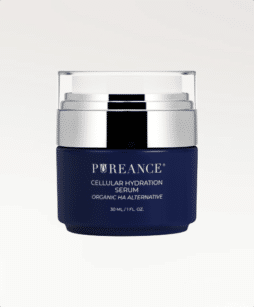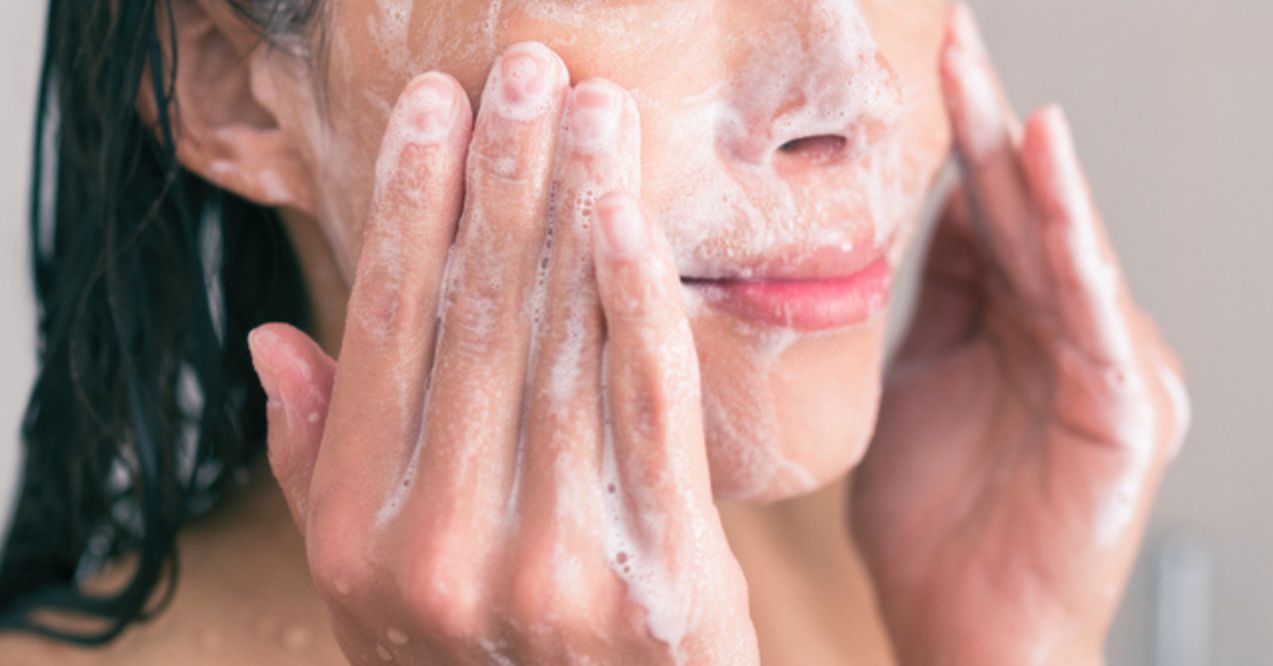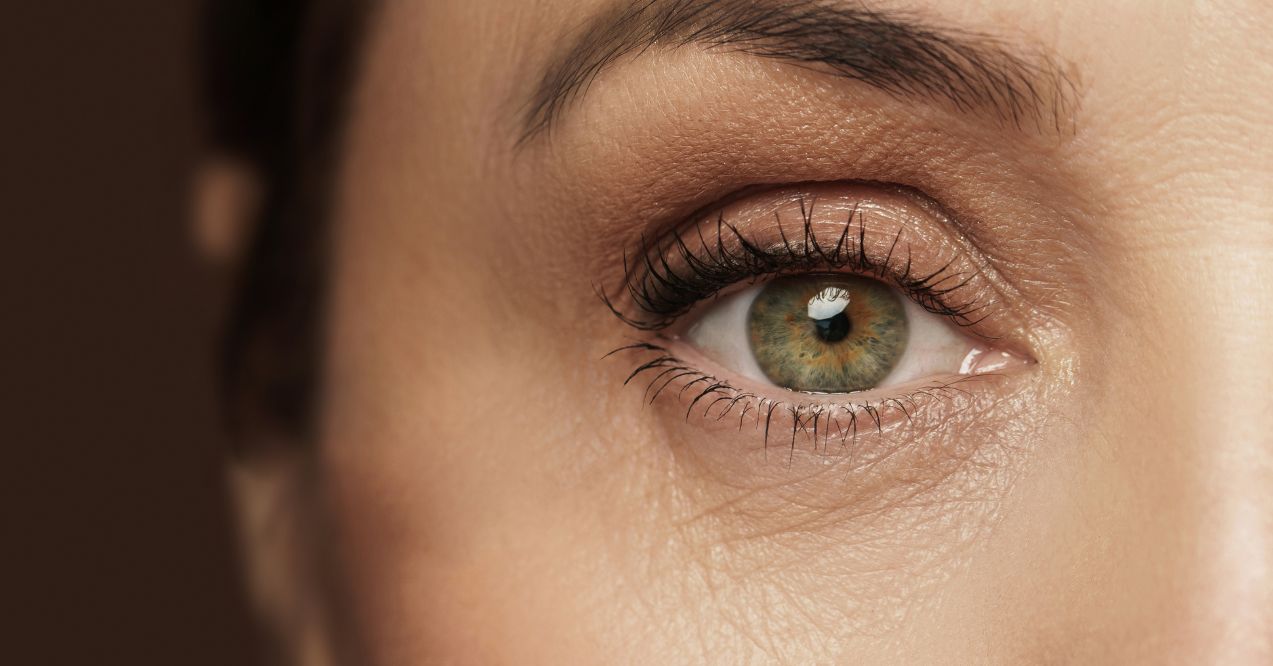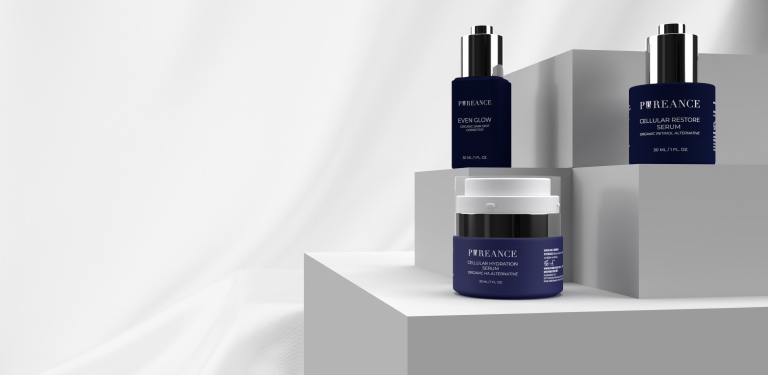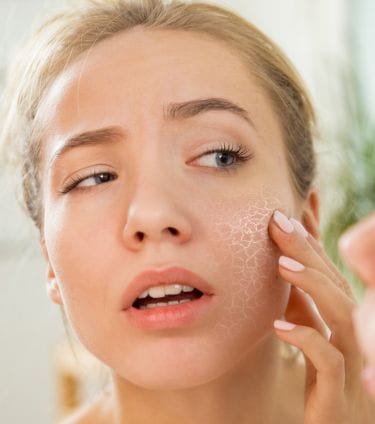
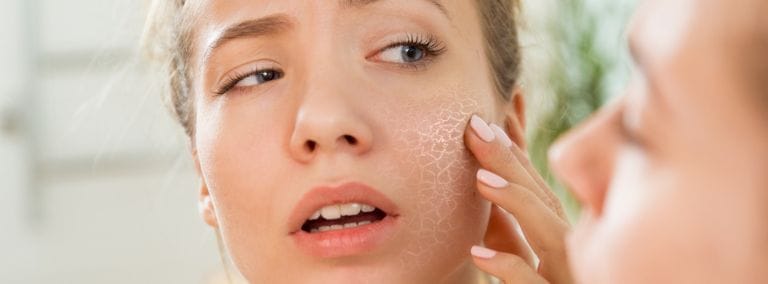

Thirsty Skin? Learn How to Treat Dehydrated Skin
Wondering how to treat dehydrated skin effectively? Dehydrated skin is a widespread concern that affects both its appearance and overall health. When the skin lacks sufficient moisture, it can become dull, tight, and prone to irritation. Unlike dry skin, which is a skin type, dehydrated skin is a condition that can affect anyone, regardless of skin type.
Factors such as harsh weather, over-cleansing, and lack of hydration can exacerbate the issue, leaving the skin feeling uncomfortable and looking lackluster. In this post, we’ll explore practical ways to address skin dehydration, highlighting the best practices and ingredients to help support and promote better hydration for glowing, healthier skin.
Key Article Findings
- Dehydrated skin requires proper care through gentle, hydrating cleansers and multi-layer moisturizing techniques to retain moisture and support skin health.
- Essential ingredients like hyaluronic acid, ceramides, peptides, and beta-glucan are effective in restoring hydration and improving the skin’s moisture barrier.
- Lifestyle adjustments, including a diet rich in omega-3s, adequate water intake, and the use of humidifiers, help maintain optimal skin hydration.
Cleansing Without Compromise
Learning how to treat dehydrated skin begins with selecting the right cleanser. A gentle, hydrating cleanser is key to removing impurities without stripping your skin’s natural moisture. Traditional cleansers with harsh surfactants can dry out the skin, so it’s crucial to opt for pH-balanced formulas that help maintain the skin’s natural barrier. Oil cleansing is another effective method for deep hydration, as it dissolves dirt while locking in moisture.
Moreover, when cleansing, use lukewarm water, as hot water can dehydrate the skin by removing its essential oils. If you live in an area with hard water, the excess minerals can further dry out your skin. In such cases, consider using a filter or applying a toner after cleansing to counteract the drying effects. Proper cleansing habits ensure your skin is thoroughly cleaned while supporting its hydration levels.
Key Ingredients for Fixing Skin Dehydration
For those wondering how to fix dehydrated skin, knowing the key ingredients for addressing skin dehydration is crucial. Here are the most effective options to consider:
- Hyaluronic Acid (HA) – Hyaluronic acid is a powerful humectant that draws moisture into the skin, supporting hydration at a deep level. For best results, apply HA to damp skin and follow up with a moisturizer to lock in the hydration.
- Ceramides – Ceramides are another crucial component in dehydrated skin treatment. They work by strengthening the skin’s natural barrier, helping to prevent moisture loss. Incorporating ceramides into your routine via creams or serums can significantly enhance your skin’s moisture retention.
- Humectants and Occlusives – Humectants, such as glycerin, and occlusives, like squalane or shea butter, work synergistically to attract and retain moisture. For optimal hydration, apply a humectant-based serum beneath an occlusive moisturizer.
- Beta-glucan – Beta-glucan is a highly effective moisturizer that also soothes sensitive or irritated skin.
Advanced Peptide Treatments
When considering how to deal with dehydrated skin, advanced peptide treatments may offer significant benefits. Peptides, like Copper peptides and Matrixyl, are known for aiding in skin recovery by stimulating collagen production, which helps improve skin texture and resilience. Copper peptides also promote wound healing and reduce inflammation, making them ideal for addressing the underlying issues of skin dehydration.
Additionally, peptides can be effective in targeting hyperpigmentation without causing further damage to the skin. This makes them a gentle but powerful tool in brightening the skin while improving hydration. To incorporate peptides into your skincare routine, use peptide serums or creams after cleansing and before heavier products like moisturizers or oils. This layering ensures that the peptides can penetrate effectively and work on reinforcing the skin’s barrier, helping it retain moisture and recover from dehydration more efficiently.
The Art of Moisturizing
Knowing how to care for dehydrated skin also starts with selecting the right moisturizer for your skin type. Oily skin benefits from lightweight, non-comedogenic gels, while dry skin requires richer, cream-based formulas. Proper application is also critical – gently patting, rather than rubbing, helps your skin absorb the product more effectively without causing irritation.
Moreover, daytime moisturizers should focus on hydration with SPF, while night creams provide deeper nourishment. The multi-layer hydration technique, or “moisture sandwiching,” involves applying hydrating serums before heavier creams to lock in moisture. Skin cycling for hydration can also benefit all skin types by alternating intense moisturization days with lighter, recovery-focused routines to prevent overloading the skin.
Targeted Treatments
If you are dealing with dry skin, consider incorporating hydrating serums into your daily routine, applying them before moisturizer for maximum absorption. Use weekly hydrating masks to boost skin moisture levels. For a DIY mask, mix honey with mashed avocado or banana for intense hydration:
- Honey – A natural humectant that draws in moisture while soothing and healing the skin.
- Avocado – Rich in healthy fats and vitamins, it deeply nourishes and hydrates dry skin.
- Banana – High in potassium and vitamins, it helps moisturize and smooth the skin.
Moreover, cryotherapy, or cold therapy, can enhance skin hydration by improving circulation and reducing inflammation. Try ice rolling or cold compresses for 1-2 minutes daily. Gua sha and facial massage techniques may also improve product absorption and stimulate lymphatic drainage, reducing puffiness and promoting a healthy glow. When using sheet masks, leave them on for 15-20 minutes, then gently pat in any remaining serum. For an extra boost, store your sheet masks in the refrigerator for a cooling effect that can help reduce inflammation and tighten pores.
Lifestyle Adjustments
Lifestyle changes are essential in managing dehydrated skin. A balanced diet rich in omega-3 fatty acids – found in foods like salmon, flaxseeds, and walnuts – can strengthen the skin’s natural barrier and support moisture retention. Staying hydrated with adequate water intake is equally important to maintain skin elasticity and overall hydration.
Your environment also affects skin health. Using a humidifier, especially in dry climates or during winter months, can help maintain optimal indoor humidity levels, preventing skin from drying out. Avoid hot showers, as they strip the skin’s natural oils, contributing to dehydration. Additionally, hydration-supporting supplements, such as omega-3 and antioxidant-rich formulations, can further promote healthy, hydrated skin.
Beyond Topical Treatments
If you still wonder how to fix skin dehydration, professional treatments may offer advanced solutions. For severe cases, procedures like hydrafacials provide deep hydration by cleansing, exfoliating, and infusing the skin with moisturizing serums all in one session. Microneedling is another effective method that enhances product penetration by creating micro-channels in the skin, allowing hydrating ingredients to reach deeper layers.
Emerging technologies are also making strides in skin hydration. Nano-mist devices deliver ultra-fine particles of moisture to the skin, offering continuous hydration throughout the day. Transdermal water therapy uses specialized equipment to infuse water molecules directly into the skin, promoting long-lasting moisture retention.
Additionally, many may wonder: is humidity good for skin? The answer is yes – higher humidity levels can help the skin retain moisture, reducing the effects of dehydration. Nevertheless, if persistent dryness and irritation occur despite a solid skincare routine, it’s essential to consult a dermatologist for further evaluation and treatment options.
Conclusion
Knowing how to treat dehydrated skin is essential for maintaining healthy, glowing skin. By incorporating hydrating cleansers, advanced ingredients like hyaluronic acid and ceramides, and professional treatments such as hydrafacials or microneedling, you can effectively address dehydration. Moreover, understanding the difference between dehydration lines vs wrinkles is also crucial for choosing the right treatments.
While dehydration lines can be alleviated with moisture, wrinkles require more targeted anti-aging solutions. Beyond skincare products, lifestyle changes such as using a humidifier and maintaining proper hydration levels can further support your skin’s health. With the right approach, you can restore your skin’s moisture balance and resilience.
Yes, oily skin types can experience dehydration. While oily skin produces excess oil, it can still lack water, leading to dehydration. This imbalance causes the skin to appear shiny but feel tight, rough, and prone to irritation.
The time to fix dehydrated skin varies but generally takes a few days to a couple of weeks. Consistently using hydrating products, drinking enough water, and making lifestyle adjustments can speed up the skin’s recovery process.
For dehydrated skin, using hydrating face masks 1-2 times per week is ideal. This frequency helps replenish moisture without overwhelming the skin, promoting hydration and improving texture while supporting your regular skincare routine.
Humectants draw moisture from the environment and deeper skin layers to hydrate the skin, while occlusives form a protective barrier on the skin’s surface, locking in moisture and preventing water loss. Both work together for optimal skin hydration.
Beta-glucan offers superior moisturizing properties compared to hyaluronic acid due to its ability to penetrate deeper layers of the skin, providing long-lasting hydration. However, both ingredients are effective and can complement each other in a skincare routine.
This site offers health, wellness, fitness and nutritional information and is designed for educational purposes only. You should not rely on this information as a substitute for, nor does it replace, professional medical advice, diagnosis, or treatment. If you have any concerns or questions about your health, you should always consult with a physician or other health-care professional. Do not disregard, avoid or delay obtaining medical or health related advice from your health-care professional because of something you may have read on this site. The use of any information provided on this site is solely at your own risk.
Nothing stated or posted on this site or available through any services are intended to be, and must not be taken to be, the practice of medical or counseling care. For purposes of this agreement, the practice of medicine and counseling includes, without limitation, psychiatry, psychology, psychotherapy, or providing health care treatment, instructions, diagnosis, prognosis or advice.
